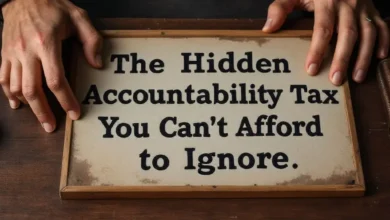It’s Okay to Have a Bad Day: 10 Ways to Make It Better

Let’s face it, life isn’t a never-ending Instagram filter. Sometimes, the sun hides behind rain clouds, casting a gray shadow over our mood. The alarm clock might feel like an enemy, your coffee tastes lukewarm, and even your favorite shoes seem to pinch just a little too much. Yep, it’s a bad day. but, It’s Okay to Have a Bad Day
Here’s the truth, though: bad days are woven into the very fabric of life. They’re not flaws, they’re not signs of weakness, and they certainly don’t define you. Just like sunshine and rain dance together in nature, the good and the not-so-good days are simply part of the human experience.
But here’s the good news: weathering a bad day doesn’t mean you have to suffer through it alone. In this article, we’ll equip you with tools and strategies to not only survive, but thrive even when the going gets tough. You’ll discover how to reframe your thinking, find humor in the midst of chaos, and even learn valuable lessons from those less-than-stellar moments.
So, take a deep breath, grab your metaphorical raincoat, and join us on this journey. Remember, even the darkest clouds eventually give way to sunshine, and your bad day won’t last forever. Let’s turn that frown upside down, together.
Normalizing the Not-So-Normal: Why Bad Days Belong
Raise your hand if you’ve ever had a day where everything felt like a scene from a sitcom gone wrong. Burnt toast for breakfast, spilled coffee on your shirt, and a meeting that seemed to stretch into eternity – sound familiar? We’ve all been there, and here’s the truth: those days are perfectly normal.
Think of it this way: emotional well-being isn’t about constant sunshine and rainbows. It’s about accepting the full spectrum of human experience, including the inevitable downpours. Studies show that over 90% of adults experience negative emotions like sadness, frustration, and anger at some point. So, feeling down on occasion isn’t a sign of weakness; it’s simply part of being human.
And here’s the kicker: embracing these not-so-sunny moments can actually be beneficial. Experts in stress management agree that acknowledging and processing negative emotions is crucial for emotional resilience. It’s like building mental muscles – the more you practice navigating tough times, the better equipped you are to handle them in the future.
So, the next time a bad day throws its curveballs, remember, you’re not alone. In fact, you’re right on track with the human experience. And hey, who knows, maybe that “bad day” might just hold some valuable lessons waiting to be discovered.
1. Acknowledge Your Feelings and Let Them Out
- The first step to cope with a bad day is to accept your feelings and express them in a healthy way.
- Don’t bottle up your emotions or pretend that everything is fine. This will only make you feel worse and more stressed.
- Instead, find a safe and constructive outlet for your feelings, such as writing in a journal, talking to a friend, crying, or venting.
- By acknowledging your feelings and letting them out, you will release some of the tension and negativity that is weighing you down. You will also gain more clarity and perspective on your situation.
2. Reach Out to Someone You Trust and Talk It Out
- Another way to cope with a bad day is to seek support from someone who cares about you and understands you.
- Don’t isolate yourself or feel like you have to deal with everything alone. You are not a burden or a bother to anyone.
- Instead, reach out to a family member, a friend, a colleague, a mentor, or a professional, and share your thoughts and feelings with them.
- By talking to someone you trust, you will feel less alone and more supported. You will also get some advice, feedback, or encouragement that can help you overcome your challenges.
3. It’s Okay to Have a Bad Day: Do Something That Makes You Happy and Relaxed
- Do something that brings you joy and peace.
- Don’t dwell on the negative aspects of your day or let them consume your mind. This will only make you feel more miserable and hopeless.
- Instead, find some time to do something that makes you happy and relaxed, such as listening to music, reading a book, watching a movie, playing a game, or doing a hobby.
- By doing something that makes you happy and relaxed, you will boost your mood and energy. You will also distract yourself from your problems and focus on the positive aspects of your life.
4. Practice Gratitude and Appreciate What You Have
- Don’t take everything for granted or focus on what you lack. This will only make you feel more dissatisfied and unhappy.
- Instead, make a list of things that you are grateful for, such as your health, your family, your friends, your achievements, or your opportunities.
- By practicing gratitude and appreciating what you have, you will increase your happiness and satisfaction. You will also realize that you have many reasons to be thankful and hopeful.
5. Challenge Your Negative Thoughts and Replace Them With Positive Ones
- Don’t let your negative thoughts control you or define you. They are not facts, but opinions or assumptions that can be changed.
- Instead, identify your negative thoughts and question their validity, accuracy, and helpfulness. Then, replace them with positive thoughts that are more realistic, optimistic, and empowering.
- By challenging your negative thoughts and replacing them with positive ones, you will improve your self-esteem and confidence. You will also change your outlook and attitude towards your situation.
6. It’s Okay to Have a Bad Day: Take a Break and Do Something Different
- Don’t force yourself to continue working or doing the same thing that is causing you stress or frustration. This will only make you feel more exhausted and overwhelmed.
- Instead, take a break and do something different that can refresh your mind and body, such as taking a nap, meditating, stretching, or going for a walk.
- By taking a break and doing something different, you will recharge your batteries and reduce your stress. You will also gain some new insights and ideas that can help you solve your problems.
7. Get Some Fresh Air and Exercise
- Don’t stay indoors or be sedentary all day. This will only make you feel more sluggish and depressed.
- Instead, get some fresh air and exercise, such as jogging, cycling, swimming, or playing a sport.
- By getting some fresh air and exercise, you will improve your physical and mental health. You will also release some endorphins and serotonin that can improve your mood and motivation.
8. Treat Yourself to Something Nice
- Don’t deprive yourself or punish yourself for having a bad day. You deserve some kindness and compassion from yourself.
- Instead, treat yourself to something nice that can make you feel good, such as buying something you like, eating something you crave, or pampering yourself with a massage, a manicure, or a spa.
- By treating yourself to something nice, you will reward yourself and boost your self-esteem. You will also remind yourself that you are worthy and valuable.
9. Learn From Your Mistakes and Grow From Them
- Don’t beat yourself up or dwell on your failures. Everyone makes mistakes and no one is perfect.
- Instead, learn from your mistakes and see them as opportunities to improve and grow. Ask yourself what you can do better next time, what you can learn from the experience, and what you can be proud of yourself for.
- By learning from your mistakes and growing from them, you will enhance your skills and knowledge. You will also develop a growth mindset and a resilience that can help you overcome any challenge.
10. It’s Okay to Have a Bad Day: Remember That Tomorrow Is a New Day
- Don’t let your bad day ruin your future or define your life. It is just one day out of many, and it will pass.
- Instead, remember that tomorrow is a new day, and that you have a chance to start over and make it better. Think about what you can do differently, what you can look forward to, and what you can be hopeful for.
- By remembering that tomorrow is a new day, you will not lose hope or give up on yourself. You will also embrace the possibility and the potential that each day brings.
Final Thoughts
In this article, you have learned 10 ways to cope with a bad day and make it better. You have learned how to acknowledge your feelings, reach out to others, do something that makes you happy, practice gratitude, challenge your negative thoughts, take a break, get some fresh air, treat yourself, learn from your mistakes, and remember that tomorrow is a new day.
By following these simple tips, you can turn your bad day into a good one, or at least a better one. You can realize that it’s okay to have a bad day, as long as you don’t let it define you or stop you from living your best life.
So, the next time you have a bad day, don’t despair or give up. Try out these 10 ways and see how they can help you. And if you have any other tips or experiences to share, feel free to leave a comment below. We would love to hear from you.
Remember, it’s okay to have a bad day, but it’s not okay to give up on yourself. You are stronger than you think, and you can overcome any challenge. It’s okay to have a bad day, but it’s better to make it a good one. You have the power and the choice to do so. It’s okay to have a bad day, but it’s amazing to have a great one. And you deserve to have a great one every day.






